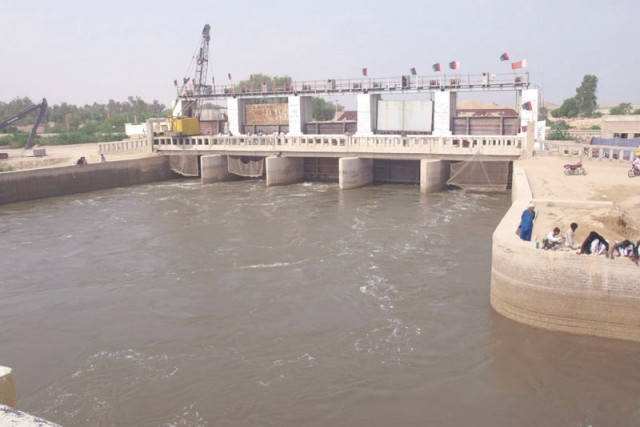Discrimination: ‘Karachi gets more water than rest of Sindh but there is little water tariff recovery’
Speakers claim management is one of the main reasons for provincial water crisis.

Addressing the ‘Water Management in Sindh: Issues and Options’ seminar organised by the Servants of Sindh Society (SSS) at the Marriott hotel on Sunday, Effendi also claimed that the federal government has failed to release funds for the rehabilitation of Manchar Lake.

Before Effendi, former bureaucrat Fazlullah Qureshi had told the participants that the K-3 and K-4 [water scheme] projects were made for the large residential schemes on Super Highway near Karachi, but were to come at the cost of irrigation water for the rest of Sindh. “Karachi gets more water than the other cities of Sindh but there is little [water tariff] recovery from it,” said Qureshi.
The former bureaucrat also discussed the amount of water to be given to Sindh according to the Water Accord 1991, claiming that Punjab takes up 57 per cent of the water - even though its agreed share is 49 per cent - while Sindh and Balochistan are given less water than their agreed 46 per cent share.
“Agricultural land in the Punjab has been increasing steadily for the past 40 years, but has been decreasing in Sindh,” said Qureshi, sharing figures that have been generated by government agencies. “Sindh’s budget is about 25 per cent more than that of Punjab but there is a big difference between the two provinces. Who is responsible for this and who will respond?”
Strengthening Participatory Organisation CEO Naseer Memon talked about the present condition of the Manchar Lake, one of the biggest freshwater lakes in Asia. “The federal government has stopped the lake’s funding in the past five years. As a result, the lake is in a bad condition,” he said. Memon then highlighted the lake’s importance, claiming that over 100,000 acres of agricultural land is being cultivated through the lake. He also claimed that around 100 species of birds and 200 species of fish have been found in the lake and that their habitat is being seriously threatened by the government’s mismanagement.
“The Water and Power Development Authority (Wapda) is responsible for this,” alleged Memon, saying that the Sindh government is protecting the interests of Wapda and international organisations rather than of the people of Sindh.
The seminar was also attended by a number of current and former bureaucrats, members of civil society organisations and media persons. The issue of water, especially for irrigation purposes, was highlighted and the speakers felt that a scientific approach needs to be taken in order to resolve the issue.
Former irrigation secretary Muhammad Hasham Laghari criticised the irrigation department for interfering in the matters of the Sindh Irrigation and Drainage Authority. Laghari also discussed the history of water distribution and flow of water from the Indus River.
Dr Fateh Muhammad Marri, the project coordinator of the Sindh Water Sector Improvement Project, advocated better water management. “Respect water rights and recognise that water has multiple uses,” said Marri. “We are all responsible for the water [distribution] failure.”
Marri added that climate change has contributed to the water crisis in the province and felt that modernisation of the water management infrastructure may help counter water scarcity. “There are flaws in our system, therefore, water is wasted,” he said. “This is also a major reason that growers are not provided water when they require.” Another former irrigation secretary, Muhammad Idris Rajput, also addressed the participants and presented details on the barrages of Sindh and Punjab and their uses and contribution in the agriculture sector.
Published in The Express Tribune, August 26th, 2014.


















COMMENTS
Comments are moderated and generally will be posted if they are on-topic and not abusive.
For more information, please see our Comments FAQ